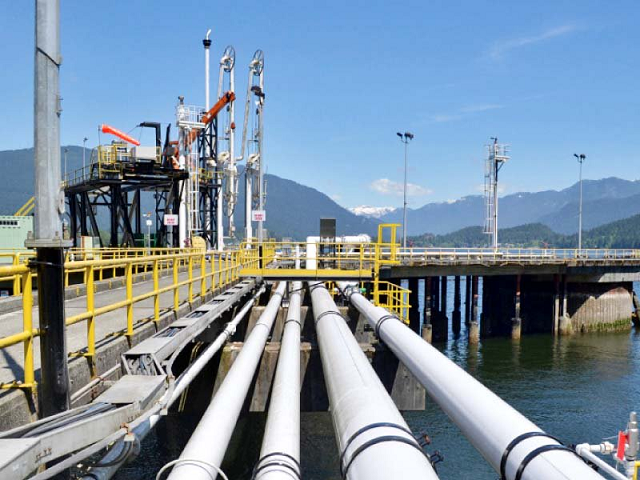PML-N govt quietly raised profit margins of oil industry
It took the decision just a day before the end of its tenure

Since no revision in diesel margins was made like the way petrol margins were revised based on the CPI, the OMCs claimed that they suffered a loss of Rs485 million from November 2017 to February 2018.
PHOTO: FILE
In a sharp contrast, the PML-N government, on the one hand, left the decision on upward revision in petroleum product prices for the caretaker government, but, on the other hand, it quietly increased the margins on diesel and petrol effective July 2018.
The Economic Coordination Committee (ECC) of the cabinet, in its meeting on May 30 chaired by then prime minister Shahid Khaqan Abbasi, took a decision to bail out the oil industry.
Nawaz sees PML-N emerging victorious on July 25
In 2017, the industry had managed to get a free hand from the PML-N government in setting diesel margins despite fierce opposition from industry regulator Oil and Gas Regulatory Authority (Ogra).
Now, due to delay on the part of Federal Board of Revenue in establishing a mechanism for general sales tax (GST) collection under a deregulated system, the oil industry has managed to get the margins revised in line with an old Consumer Price Index (CPI)-based formula.
The Petroleum Division had taken CPI levels from January 2015 to April 2018 as a base to recommend high margins for the oil industry.
It reminded the ECC that the committee, in an earlier decision taken on October 6, 2017, had approved petrol margins of oil marketing companies (OMCs) and dealers based on the CPI reading.
Accordingly, the petrol margins were revised upwards from November 1, 2017 whereas diesel margins were proposed to be deregulated from December 1, 2017 subject to certain conditions.
However, its implementation was put off till the establishment of the GST recovery mechanism for the deregulated margins. The Oil Companies Advisory Council (OCAC), in its letter on March 2, 2018, protested against the delay in deregulation of diesel margins due to its adverse impact on the oil industry.
PML-N government leaves behind power crisis
Since no revision in diesel margins was made like the way petrol margins were revised based on the CPI from November 1, 2017, the OMCs claimed that they suffered a loss of Rs485 million from November 2017 to February 2018. In an effort to avoid further loss, it was suggested that till a GST recovery mechanism was put in place, the diesel margins may be notified based on the CPI in line with the procedure adopted for petrol.
The Petroleum Division proposed that OMC and dealer margins on petrol may also be deregulated in line with the planned deregulation of diesel margins. It, however, suggested that till the development of the GST recovery mechanism, the margins on diesel and petrol should be reviewed based on the CPI effective from July 2018.
Accordingly, it said, fresh margins on petrol and diesel had been worked out keeping in view the CPI for the respective period released by the Pakistan Bureau of Statistics.
PML-N to win elections, predicts The Economist
The Petroleum Division proposed that petrol margins of OMCs and dealers may be jacked up by Rs0.09 and Rs0.12 per litre respectively based on CPI readings for May 2017 to April 2018 while diesel margins may be pushed up by Rs0.23 and Rs0.26 per litre respectively based on CPI data for November 2015 to April 2018.
After comprehensive discussions, the ECC approved the margins.
Published in The Express Tribune, June 9th, 2018.
Like Business on Facebook, follow @TribuneBiz on Twitter to stay informed and join in the conversation.


















COMMENTS
Comments are moderated and generally will be posted if they are on-topic and not abusive.
For more information, please see our Comments FAQ